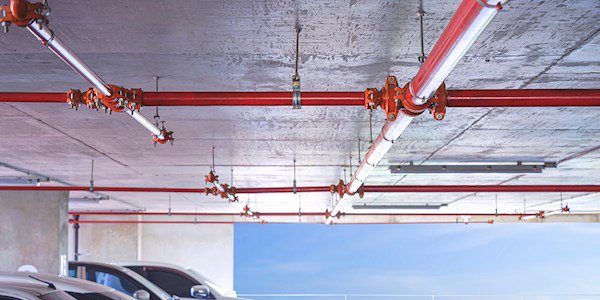
According to the British Automatic Fire Sprinkler Association1: “Following major fires in car parks around the world, it is now recognised that designers should seriously consider sprinkler provision to avoid multiple vehicle fires, resulting in huge insurable losses and the possible loss of life”.
In response to this, our risk management team has provided some compelling reasons below highlighting why installing sprinkler systems could be crucial to increasing fire safety in such settings:
- Rapid Fire Suppression: Sprinkler systems are designed to react instantly to a fire outbreak. They can extinguish or significantly control flames before firefighters even arrive, dramatically reducing the extent of damage.
- Protection of Lives: Fires in parking facilities can pose a significant risk to the people inside, not just the property. The installation of sprinklers can provide crucial time for occupants to evacuate safely and avoid the dangers of smoke and flames.
- Economic Savings: While the cost of installing sprinkler systems might seem high initially, it's a mere fraction of the expenses incurred in recovering from a fire. Insurance claims, property damage, and business interruptions can be financially crippling, while sprinklers act as a first line of defence.
- Deterrent to Arson and Vandalism: The presence of sprinklers can discourage criminal activities in parking facilities, as potential arsonists will recognise that their actions are more likely to be foiled before they can cause significant harm.
- New Vehicle Technology: Whilst a standard fire sprinkler system won’t necessarily extinguish a fire caused by an electric vehicle fire, it can supress it and prevent it from spreading to other areas of the car park2.
In conclusion, the devastation at Luton Airport is a stark reminder of the need for sprinkler systems to be installed in parking facilities. According to experts3, had the car park been equipped with a functional sprinkler system, the fire might have been contained, resulting in only localised damage. Chief fire officer Andrew Hopkinson pointed out that the Luton car park seemed to lack sprinklers, stating that they "may have made a positive impact on this incident." These sentiments find agreement with Paul Trew, a technical advisor at the Institution of Fire Engineers (IFE), who suggests that it's time to re-evaluate safety regulations in parking facilities.

